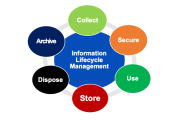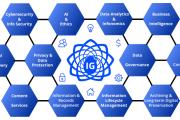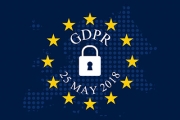Publications by Category
Corporate Governance
Information Governance Key to Good Corporate Governance
June 30th, 2020
Information governance, data protection and security, privacy, cybersecurity and artificial intelligence (AI) have all become critical topics for boards and government bodies to consider. Historically, the issues tended[...]
Corporate governance in the digital economy: The critical importance of information governance
November 26th, 2018
Information is critical to decision-making and plays an essential role across all three pillars of governance. The emerging driver of good information governance globally is compliance with[...]
Delegations and corporate risk management – how do they intersect?
March 31st, 2015
Corporate governance – how a corporation is controlled and directed, and how it manages its risk profile – is generally contained in a framework of policies, rules, codes[...]
Delegations & Authorisations - principles, benefits and pitfalls
September 30th, 2014
How well an organisation deals with its delegations is fundamental to its efficiency to maximise opportunities and minimise risk. From a practical management perspective it is necessary in[...]
Information Governance
Dark Data – the risks, costs and ESG
October 17th, 2023
Dark data poses potentially significant risks and costs for organisations. Additionally, with an increasing focus on ESG reporting, organisations should be considering how they can measure and report[...]
The use of WhatsApp and messaging record-keeping failures: the massive fines keep coming
August 18th, 2023
On 8 August 2023, penalties for record-keeping failures of $549 million were ordered against 10 banks, broker-dealers and investments advisers in the U.S. The Commodity Futures Trading Commission[...]
Information Lifecycle Management: what is it and how it reduces risk?
February 7th, 2023
Most organisations are collecting and generating exponentially increasing volumes of data each year. However, many organisations struggle to safely and efficiently dispose of data that is no longer[...]
Optus Data Breach – the risks of data over - retention
October 24th, 2022
The Optus Data Breach incident has shed some much-needed light on the need for robust, top-down board governance over organisational data and information. It is evident that this[...]
The Information Governance Primer
September 16th, 2021
The Information Governance Primer provides a wide-ranging overview on the fundamentals of good information governance. In today’s digital environment, the growing number and complexity of challenges associated with data[...]
IG Hindsights and Insights Report
March 29th, 2021
As we put 2020 behind us and look forward to 2021, we reflected in an interactive virtual discussion forum on the key IG learnings from the past 12[...]
Information Governance: Optimising the Lifeblood of Organisations
November 8th, 2020
Data and information are increasingly becoming the lifeblood of organisations. However the exponential amounts of data being collected by companies and government alike, together with the risks and[...]
Information Governance Key to Good Corporate Governance
June 30th, 2020
Information governance, data protection and security, privacy, cybersecurity and artificial intelligence (AI) have all become critical topics for boards and government bodies to consider. Historically, the issues tended[...]
Data as a Strategic National Resource: The Importance of Governance and Data Protection
June 17th, 2019
As we rapidly move toward a technology-driven, globally interconnected world, the exponential growth in data collected by business and government enables significant value to be derived from this[...]
Big Data, Privacy and Information Governance: Incorporating an Ethical Based Assessment
June 1st, 2019
As the law lags behind in rapid technology innovations, particularly in big data, artificial intelligence (AI), machine-learning and the Internet of Things (IoT), there is increasing awareness and[...]
→ Information Governance Checklist
Legal Project Management
Legal Project Management – improving outcomes & reducing costs
August 13th, 2014
The current buzz about legal project management is that it provides a way for in-house counsel to achieve project objectives with reduced cost. The question is how do[...]
Privilege
Privilege – what not to do
January 29th, 2015
Privilege is not a given simply because there is confidential communication between a lawyer and their client for the dominant purpose of seeking or giving legal advice –[...]
Privilege Principles - when will a communication be privileged?
August 13th, 2014
Determining when a document or communication is privileged can be a challenge. For in-house counsel, questions can arise about the context in which advice was given and, in[...]
In-house Counsel and Privilege: 10 tips
August 11th, 2014
The issue of whether legal professional privilege attaches to communications or documents generated in a company or organisation that employs an in-house lawyer has received quite a lot[...]
Inadvertent Disclosure of Documents
August 1st, 2014
The High Court has held that where a court orders discovery it has the powers necessary to permit a party to correct a mistake to deal with inadvertent[...]
Regulatory Raids
Regulatory Raids - are you prepared?
August 13th, 2014
Globally ‘dawn raids’ by regulators are becoming increasingly common on corporate organisations in relation to both civil and criminal matters. You may only become aware that your organisation and/or[...]
Privacy & Data Protection
Changes to Australia’s Privacy Act: Overview and Preparation Checklist
November 8th, 2022
In the wake of the recent wave of high-profile data breaches at Optus, Medibank and MyDeal, Attorney-General Mark Dreyfus tabled the Privacy Legislation Amendment (Enforcement and Other Measures) Bill[...]
Optus Data Breach – the risks of data over - retention
October 24th, 2022
The Optus Data Breach incident has shed some much-needed light on the need for robust, top-down board governance over organisational data and information. It is evident that this[...]
Information Governance: Optimising the Lifeblood of Organisations
November 8th, 2020
Data and information are increasingly becoming the lifeblood of organisations. However the exponential amounts of data being collected by companies and government alike, together with the risks and[...]
Australia and New Zealand’s COVID-19 Contact Tracing Apps – Differences in Approach on the Road to Recovery
June 10th, 2020
While Australia and New Zealand have successfully flattened the COVID-19 curve, the approaches of each country have somewhat differed, both in relation to the level of restrictions imposed[...]
Big Data, Privacy and Information Governance: Incorporating an Ethical Based Assessment
June 1st, 2019
As the law lags behind in rapid technology innovations, particularly in big data, artificial intelligence (AI), machine-learning and the Internet of Things (IoT), there is increasing awareness and[...]
GDPR: Change to European privacy laws and its impact on Australian businesses
January 15th, 2018
The European’s Union General Data Protection Regulation (GDPR) imposes significant change to privacy laws in Europe and will apply and be enforced from 25 May 2018. Organisations that[...]
Australia’s new Notifiable Data Breaches Scheme: Is your Data Breach Response Plan up to date?
January 15th, 2018
Australia’s Notifiable Data Breaches (NDB) scheme comes into effect from 22 February 2018. This article explains what a Notifiable Data Breach is and when to notify the Australian[...]
Privacy and data breaches – how information governance minimises the risk
May 6th, 2015
Preventing data privacy breaches is becoming increasingly important, with the increasing costs of dealing with cyber attacks, IT security breaches, and the subsequent legal actions and regulatory investigations.[...]
Big data, privacy and cyber security breaches – why information governance is critical
February 26th, 2015
Organisations globally are struggling to manage both the opportunities and risks posed by the explosion of data they hold, which is increasing at an exponential rate each year. [...]
























